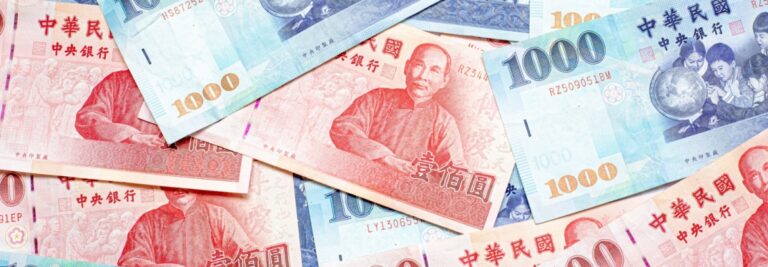In the two weeks since Beijing imposed the National Security Law (NSL) on Hong Kong, it has become utterly clear that the authorities mean business. Books have disappeared from library shelves, schools have been forced to disallow pupils from singing “Glory to Hong Kong,” the Chinese Communist Party (CCP) has inaugurated the Office for Safeguarding National Security, and there were numerous arrests on the law’s first day in force. In response to the NSL’s promulgation, Taiwan’s government issued statements of condemnation and called upon Beijing to constructively engage with Hong Kong’s people to resolve disputes. A presidential office spokesperson also made it abundantly clear that Taiwan stands with the people of Hong Kong:
Spokesperson Chang emphasized that at this time, he believes that all of Taiwan is united in solidarity, and that regardless of political affiliation, in both government and civil society, democratic Taiwan and Hong Kong are of one mind, supporting the people of Hong Kong and the universal values of freedom and democracy. Taiwan, along with its partners in the international democracy camp, also has a responsibility to continue to support Hong Kong and its people.
Taiwan has couched its response to the NSL in the language of universal values and portrayed it as driven by altruism. That portrayal is not insincere, but the NSL does matter to Taiwan for reasons beyond freedom’s fate in Hong Kong.
Heightened Threat
Writing for The Washington Post, John Pomfret argues, somewhat oddly, “perhaps the most worrisome element in the law is what is left unsaid. And that is that the legislation could serve as a blueprint for dealing with Taiwan.” Why oddly? Because the imposition of a similar national security law in Taiwan would come only after invasion and what would presumably be a brutal pacification. Worrying about a Taiwan NSL is akin to worrying about what the water damage might look like after grappling with a five-alarm fire.
But Pomfret is right to suggest the law’s promulgation should raise concerns in Taiwan. Although it has been evident at least since Xi Jinping’s speech to commemorate the 40th anniversary of the “Message to Compatriots in Taiwan” in 2019, there can now be little doubt that the Chinese leader has reasonable hope for peaceful unification with Taiwan. The NSL is designed to utterly crush dissent in Hong Kong and silence overseas supporters of democracy activists. In forcing the NSL on Hong Kong while continuing to insist that “one country, two systems” is the right model for Chinese unification with Taiwan, Beijing has made it clear that it does not care what Taiwan’s people think of such an arrangement. That bodes ill for cross-Strait relations going forward.
If Xi Jinping is no longer concerned with bringing about peaceful unification—here it should be noted that the Kuomintang, too, has been critical of the NSL and of “one country, two systems”—then he will rely ever more on coercion and ultimately force, if necessary, to bring about his desired union.
Likewise concerning for Taiwan is that, having fully extended CCP rule over Hong Kong, Xi Jinping has one less target at which to lash out in order to distract from domestic difficulties. Facing economic headwinds and an ongoing pandemic, the Chinese leader may well find it difficult to deliver on promises of greater prosperity in the coming years. He has already significantly advanced China’s position in the South China Sea and now he has served up Hong Kong on a platter. With these steps checked now off his to-do list, the threat to Taiwan grows.
Opportunities
Despite the very real concerns with which Taiwan is grappling, the NSL also presents opportunities for the country to better its own lot. The NSL came into force on July 1, the 23rd anniversary of the United Kingdom’s handover of Hong Kong to China. On the same day, Taiwan opened its Taiwan-Hong Kong Office for Exchanges and Services under the auspices of the Mainland Affairs Council (MAC). MAC has explained that the new office will:
[…] provide friendly and convenient consulting and assistance services for Hong Kong citizens coming to Taiwan for education, employment, investment, entrepreneurship, immigration, and settlement, as well as for Hong Kong-based multinational and international corporations seeking to develop in Taiwan. The Office will also pragmatically handle affairs related to humanitarian assistance and care for Hong Kong people […].
Taiwan’s effort to assist Hong Kongers that flee their home city is less substantial than it may appear at first blush. The Tsai Ing-wen (蔡英文) government has said that it welcomes people from Hong Kong that arrive legally and will make special efforts to assist them in managing the visa and immigration processes, but Taipei is not throwing open the door to refugees from the city. Even so, its decision in late May to form a task force dedicated to plotting out a humanitarian assistance effort, a few days after the NSL was added to the agenda for the National People’s Congress, made it an early mover and thus a leader on the international stage. Taiwan has found itself, if not actually coordinating with other members of the free world, at least pushing in the same direction. This convergence of responses—the United Kingdom and Australia have already announced plans to take in Hong Kongers, and legislation on the matter is working its way through the US Congress—provides an opportunity to engage more intensively with overseas partners.
Given the close business and civil society links that exist between Taiwan and Hong Kong, Taiwan may have a valuable perspective to share with foreign capitals looking for ways to respond to the NSL. Given its relative size and its need to maintain a modicum of stability in its relationship with Beijing, there may be steps Taipei is unable or unwilling to take. But in advising larger or less insecure partners on how best to support the cause of democracy in Hong Kong and dissuade Beijing from moving forward with draconian enforcement of the NSL, Taiwan has a rare opportunity to exert global leadership.
In so doing, Taiwan would make itself a more valuable diplomatic partner, enhancing its own standing in the world and ensuring foreign partners care more about its ultimate fate. China would be aggrieved by Taipei’s maturing relationships, but might also assess that it needs to approach Taiwan with greater caution because of them.
The NSL also creates an economic opportunity for Taiwan. Writing for Axios, Dan Primack noted, “the romance between private equity and Hong Kong may be over, before it even had a chance to begin.” A new carried interest tax scheme (announced in early 2020) and a new limited partnership fund regime—both under development—had been expected to lure foreign fund managers to the city. Even if those reforms go forward, Primack argues, the NSL has made Hong Kong a far less attractive place for expats to live. “We’re still awaiting specifics of Hong Kong’s new carried interest tax treatment,” he writes. “In the meantime, expect rival jurisdictions like Singapore, and maybe even Japan, to wine and dine private equity executives.”
Given what has been an at-times inhospitable environment for PE in Taiwan, it is little surprise that Taipei is not mentioned in the same breath as Singapore and Tokyo. That is unfortunate, but the circumstances are of Taiwan’s own making. Until 2017, when mutual fund managers in Taiwan were finally “allowed to set up onshore vehicles for PE investments,” the country maintained an unofficial ban on foreign private equity investments. Challenges remain, as Dan Blumenthal and I described in a paper for the Project 2049 Institute:
The greater problem for PE, however, is one of clarity of regulations and transparency in the regulatory process. Assurances from the [Financial Supervisory Commission] and from ministry officials that foreign PE is welcome are useful but insufficient. To successfully advance US-Taiwan economic relations, Taiwan should be willing to match its commitment to openness with a commitment to reform its regulations and regulatory processes.
It remains as yet unclear if there will be a significant exodus of businesses and expats from Hong Kong, but Taiwan should be ready to take advantage of that eventuality. Much as President Tsai established an ad hoc committee to develop a plan for aiding Hong Kongers, she should likewise create a working group—ideally including KMT representatives—tasked with identifying the reforms Taiwan would need to make in order to attract businesses and expats seeking to relocate from the city. Such reforms will attract greater international investment even without a global business withdrawal from Hong Kong, and Tsai should commit to rapid action.
Conclusion
The NSL is, first and foremost, a tragedy for Hong Kong, where new secret police are hard at work extinguishing freedom’s flame. The implications for Taipei, however, are substantial, and extend beyond the question of what to do with Hong Kongers seeking safety within Taiwan’s borders. There are new opportunities for Taiwan to safeguard its place in the world—a world that has also just become more dangerous.
The main point: In the wake of the National Security Law in Hong Kong, there are new opportunities for Taipei to safeguard its place in the world, but also heightened concerns about China’s designs on Taiwan.



